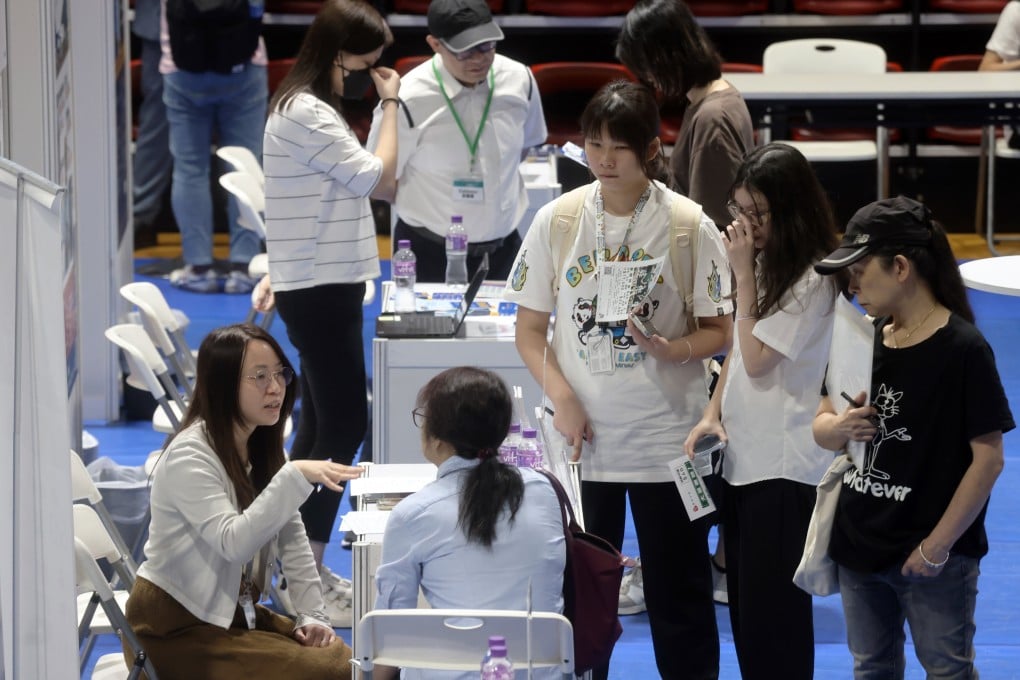One-third of Hong Kong firms expect to hire more staff but economic pressures make bosses cautious
- Human resources firm releases quarterly survey on city’s employment outlook

More than one-third of Hong Kong employers expect to hire more workers in the next three months but economic pressures and the trend of residents heading across the border to spend their cash have made bosses more cautious about recruitment, a survey has found.
Human resources firm ManpowerGroup Greater China released a quarterly survey on the city’s employment outlook on Tuesday after interviewing 525 firms earlier this month.
It found 37 per cent expected an increase in staffing in the third quarter of this year, while 29 per cent anticipated a decrease, and 32 per cent forecast no change.
The net employment outlook index for the three months to September stood at 8 per cent, down from 15 per cent for the previous quarter, when 40 per cent of respondents expected an increase in hiring and 25 per cent anticipated a decrease.
The index is calculated by subtracting the percentage of employers anticipating a decline in hiring activity from the percentage expecting an increase, with a positive figure indicating more bosses expect to add staff.
“The overall employment prospects in Hong Kong are stable,” said Lancy Chui Yuk-shan, senior vice-president of the company.